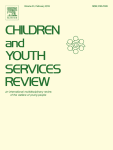
The Measurement Group works with a range of mental health programs for underserved populations. Our senior staff are strongly committed to evaluating and disseminating effective mental health service models.
- TMG evaluates programs designed to increase access to quality mental health services.
- TMG works with programs specializing in treatment for persons with mental health and other co-occurring disorders.
- TMG evaluates programs that aim to increase the capacity of service providers to meet evolving needs in mental health.
- TMG evaluations document the processes of innovative mental health services so that successful programs can be replicated.
- TMG evaluations measure outcomes at the client, program, and systems levels.
- TMG evaluations document the implementation of best practices in mental health.


